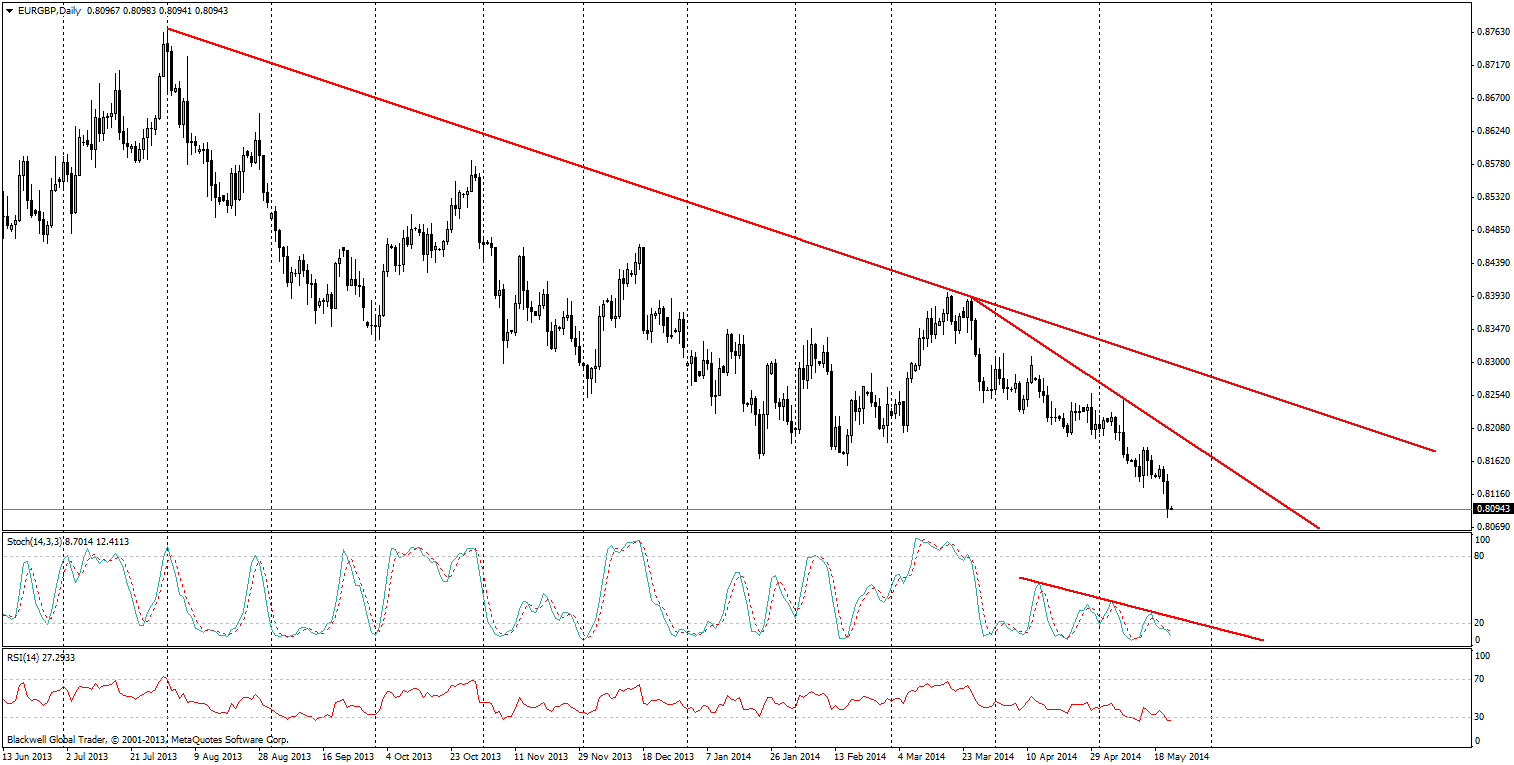After a slow start to the week for the Pound, it has shot back into favour for investors as the UK has delivered yet again on its economy with strong results.
CPI data saw a boost and this was a boost for the policies of the Bank of England (BoE), with a forecast 1.8% for core CPI, it came in at 2.0%; smack bang on the target 2% that the BoE looks to keep inflation at. This was positive signs for the Bank of England, as it now opens up the possibility of winding down their own asset purchasing program when the U.S. finishes its own – which was indicated as the precursor by Governor Carney.
Retail sales also showed impressive gains for the week, as core retail sales came in at 1.8% for the month, compared to forecasts of 0.5%. Retail sales y/y also showed significant improvement to 6.9%, which shows that confidence on the consumer side of the economy is looking very strong. Markets will be bullish in the months to come if the pace keeps up, especially with the coming summer months; which generally are more busy and see more spending.
Tonight’s preliminary GDP is expected to be within expectations, and that should come as no surprise as GDP forecasts have been fairly accurate for the economy. But future forecasts should pick up given the strength of the UK economy.
With all these movements, it’s hard not to see the UK looking to raise rates at the end of the year as the economy heats up. Mark Carney has been recognised as a great governor for any central bank, and he will recognise the risk of inflation on the economy – especially if you don’t tighten rates in a boom.
It’s surprising then that we don’t see the GBP/USD higher in the present conditions, but when we look at the UK’s neighbours, we start to understand why people are a little reserved about the Pound.
The European union's economy has been in tatters for some time and the risk of deflation gives more headaches for the struggling zone. This becomes a problem for the UK when you consider they are essentiallyneighbours and only separated by a small channel; and what’s bad for your neighbours is generally bad for you as well.
Deflation has been afflicting the Euro-zone for some time, and a repeat of the Japanese lost decade is certainly on the minds of the European Central Bank (ECB). While Mario Draghi has so far been resolute about the ECB’s ability to act, it would seem he is running out of time and markets are now expecting some ECB action come June or July -Whether this comes in the form of stimulus or not is open for debate, but the most likely candidate seems likely to be stimulus at the present time.
It's not surprising that the GBP has been affected by this, certainly some pairs like the GBP/USD may have a struggle, but the EUR/GBP is one that deserves close attention, especially the long run trend.

Just looking at the EUR/GBP,it becomes apparent that the market isabsorbing all this knowledge and putting it into action: we have a very aggressive Stoch showing that markets are keen on selling, we also have a downward trend speeding up. The RSI also looks very heavy on the sell side, and it's unlikely this will let up given the fundamental forces at play here.
So while the Pound is booming, it has not reflected that heavily on the GBP/USD -- despite its general bullish uptrend -- and it has been a little sluggish. A quick turn though to the EUR/GBP paints a different story and a downward spiral on the charts – one that will extend further come interest rates rising in the UK. But, if anything, the woes in the EU are unlikely to stop in the present market environment and it’s just a matter of time before an even steeper swing lower. The UK economy is picking up the pace, and it’s not going to stop in the short term. The question is how high can it go.
